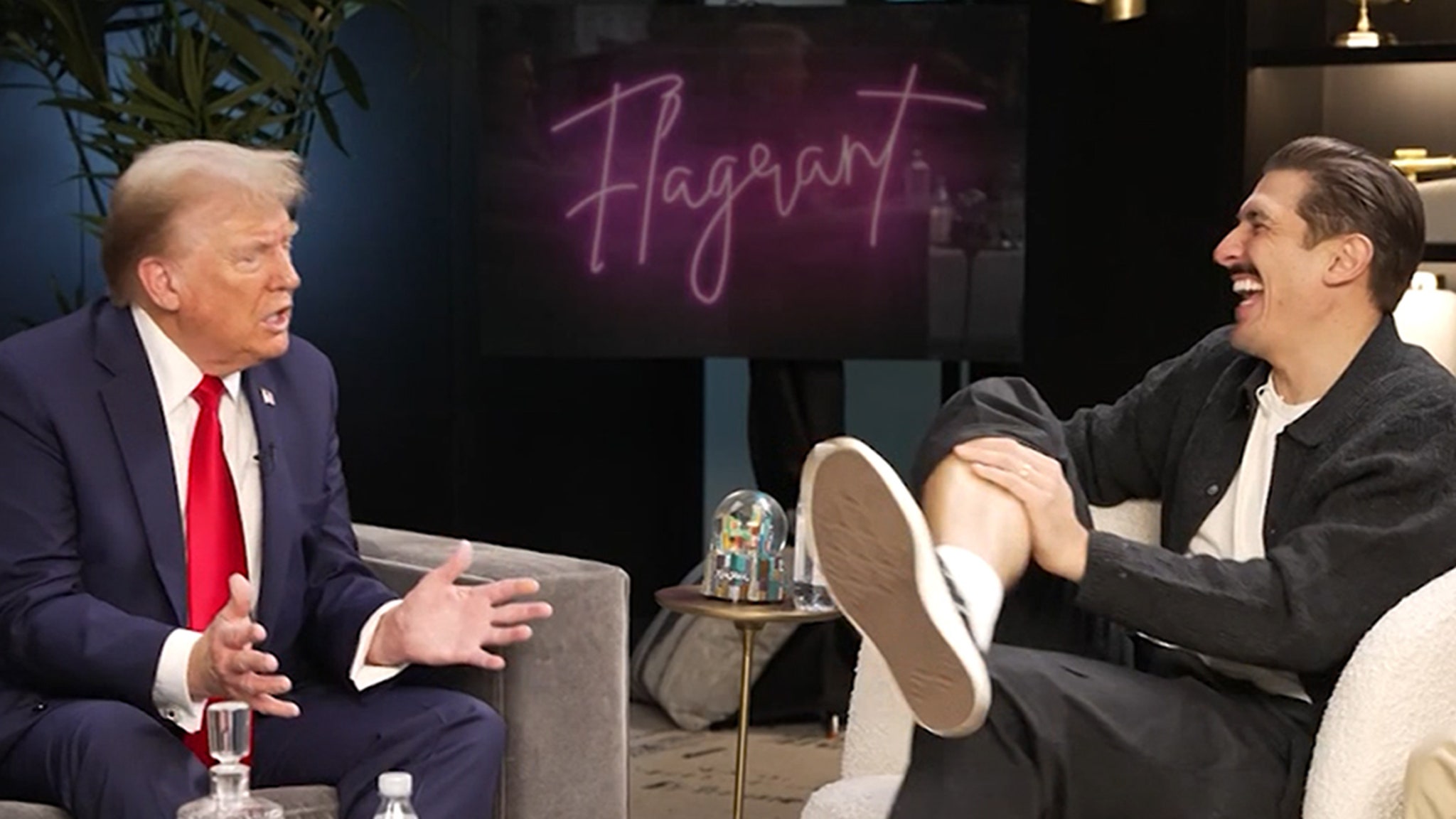Products You May Like
In a recent episode of “Flagrant with Andrew Schulz,” former President Donald Trump made waves as he confidently declared himself a “basically truthful person.” His self-characterization provoked amusement, particularly from Schulz, who reacted with laughter at the unexpected phrasing. The lighthearted moment highlighted the absurdity of Trump’s assertion while engaging in a broader discussion about the strategies of his political opponents.
During the podcast, Trump took aim at television ads from his presidential competitor, Kamala Harris, accusing her campaign of weaving falsehoods about him. He denounced these ads as misleading, particularly criticizing their portrayal of his views on various issues such as in vitro fertilization (IVF) and comments regarding the economy that he claimed were taken out of context.
The 45th President expressed frustration over what he perceives as a campaign of misinformation against him, calling for a legal framework to prevent deceptive practices in campaign advertisements. Trump asserted that, unlike Harris, he refrains from launching similar attacks, maintaining that he is fundamentally truthful—a claim that even the podcast host found amusing.
In a comedic twist, Schulz probed Trump further, questioning how one distinguishes such “truthfulness” in political discourse. This exchange encapsulated the blend of humor and political commentary that defines Schulz’s podcast style, providing listeners with an entertaining yet revealing glimpse into Trump’s mindset.
The former President also delved into his international relations perspective, specifically mentioning Indian Prime Minister Narendra Modi. Trump depicted Modi as both “the nicest human being” and someone capable of aggressive political maneuvering. This juxtaposition has sparked a discourse on social media, reflecting the mixed responses to Trump’s views on global leadership.
As the elections draw closer, Trump’s declarations of honesty and integrity are poised to shape his campaign narrative. While some may find humor in his self-assessment, others will be scrutinizing whether his actions match his words as he positions himself against his rivals.
His podcast appearance demonstrates the ongoing evolution of political communication in an increasingly digital world, where leaders engage directly with voters through informal platforms, often blending policy discussions with humor. As the political landscape heats up in the lead-up to the election, Trump’s claim to be the “basically” truthful candidate will undoubtedly serve as a focal point for both supporters and critics alike.
